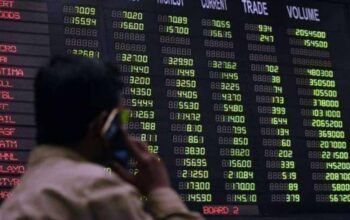By Staff Reporter
ISLAMABAD: The World Bank has appointed Bolormaa Amgaabazar as its new country director for Pakistan, effective Tuesday, succeeding Najy Benhassine, who has held the role since 2020.
Amgaabazar’s appointment aligns with the launch of a sweeping 10-year Country Partnership Framework (CPF) with Pakistan, pledging up to $40 billion in combined support from the World Bank’s financing arms to address some of the nation’s most urgent development needs.
The CPF, greenlit earlier this year, targets critical challenges including child stunting, education gaps, climate resilience, and structural reforms to spur private sector-led growth. The initiative marks a significant escalation in the World Bank’s commitment to Pakistan, a country grappling with deep-seated economic and social issues.
“The World Bank and Pakistan have a long-standing partnership that has benefited millions of people over generations,” Amgaabazar said in a statement. “I look forward to deepening our engagement with the federal and provincial governments, local institutions, civil society, the private sector, development partners, and other stakeholders.”
Amgaabazar, a Mongolian national, brings a wealth of experience to her new post. She joined the World Bank in 2004 and has since held leadership roles across East Asia and the Pacific, Africa, and Eastern Europe and Central Asia. Her most recent assignments were in Indonesia and Timor-Leste, following a stint in the Kyrgyz Republic. Before her World Bank tenure, she worked in international development in Mongolia and Southeast Asia.
Her appointment comes at a pivotal moment for Pakistan, which has been teetering on the edge of economic collapse for years. Economists and global financial bodies have pressed for sweeping reforms to stabilise the economy. The country is currently navigating a $7 billion International Monetary Fund (IMF) bailout program, contingent on raising government revenues and securing external financing—much of it from loans tied to China and Gulf nations.
“We will continue to support Pakistan to address some of its most acute development challenges, including child stunting, learning poverty, its exceptional exposure to the impacts of climate change, and the sustainability of its energy sector,” Amgaabazar added.
The World Bank Group’s footprint in Pakistan dates back to 1950. Over that span, its primary lending arm, the International Bank for Reconstruction and Development (IBRD), has funneled more than $48.3 billion into the country. The International Finance Corporation (IFC), focused on private sector solutions, has invested roughly $13 billion, while the Multilateral Investment Guarantee Agency (MIGA) has provided $836 million in guarantees to bolster foreign direct investment. Today, the combined IBRD, IFC, and MIGA portfolio in Pakistan encompasses 106 projects, with commitments totaling $17 billion.
Copyright © 2021 Independent Pakistan | All rights reserved




